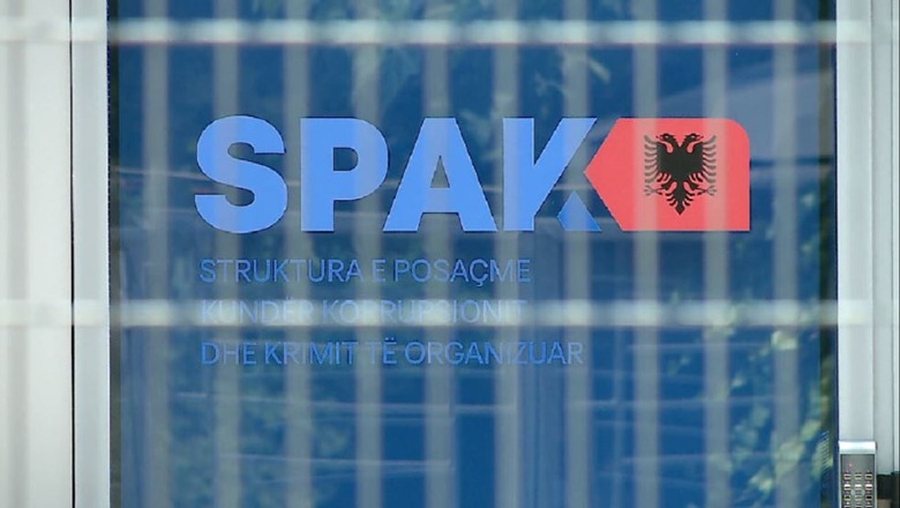SPAK and Special Courts Report: progress and challenges in combating corruption and organized crime

Photo: SPAK
The Center for the Study of Democracy and Governance (CSDG) released the comparative annual report for 2020-2023 on the work of the Special Prosecution Office (SPAK) and the Special Courts against Corruption and Organized Crime. The report highlights the trends, successes, and ongoing challenges faced by these institutions in their fight against corruption and organized crime in Albania.
Why it is important: The report provides critical insights into the effectiveness of SPAK and the Special Courts in tackling high-level corruption and organized crime. With an increased number of convictions but fewer new investigations, the findings reflect the complexities of prosecuting high-profile cases and the impact of judicial reforms on Albania’s justice system.
Context:
- The report notes a decline in new corruption cases in 2023, but a significant rise in convictions for those judged in court. SPAK has ramped up its investigations into organized crime, with a growing number of suspects identified. The Special Courts have seen an increase in the number of decisions on high-level corruption cases, despite high workloads for judges.
Tracking Corruption Cases:
- SPAK’s prosecution of corruption cases has steadily increased over the past four years, reaching 447 suspected cases in 2023. However, prosecution rates remain low, with only 38 cases (8.5%) sent to trial in 2023, down from 43 cases (10.2%) in 2022 and 33 cases (21%) in 2020.
- The number of corruption cases sent to court dropped sharply last year, with suspects decreasing from 208 in 2022 to 142 in 2023. Despite this, the number of convictions rose significantly, with 174 individuals convicted in 2023, up from 140 in 2022 and just 29 in 2020.
- New corruption cases have declined consistently, from 46 in 2021 to 40 in 2023. However, completed cases increased to 44 in 2023 after a noticeable drop to 32 in 2022. The number of pending corruption cases doubled in 2023 to 23, compared to 12 in 2022, while appeals decreased from 43 in 2022 to 30 in 2023.
- The study highlights that in 2023, the number of new criminal proceedings nearly doubled compared to 2022. Although there was an increase in proceedings, they remained significantly lower than the levels recorded in earlier years.
Tracking Organized Crime:
- SPAK’s pursuit of organized crime has seen a steady rise in cases and suspects. Despite the consistent number of cases sent to court, conviction rates remain low. In 2023, only half of those tried for organized crime were convicted, an improvement from 2022 when just one-third of defendants were found guilty.
- The report shows a slight decline of 5.5% in the rate of prosecutions for organized crime, with 11 cases out of 201 sent to court in 2023, compared to 10 out of 167 cases in 2022. The First Instance Court for Corruption and Organized Crime registered 16 new cases in 2023, down from 27 in the previous year. In the same year, 25 cases were carried over from the previous year, and 21 were completed, compared to 25 completed cases in 2022.
High-Level Officials:
- The report reveals that 43 high-ranking officials were investigated for corruption between 2020 and 2023, with 32 of these cases brought to trial. Among those convicted were three former judges, one former prosecutor, a former KPA member, three former mayors, one current mayor, a former deputy minister, a former general secretary of a ministry, and two former members of parliament.
- Convictions of high-level officials increased by 8.5% in 2023, compared to just 0.5% in 2021. The Special Court of First Instance concluded 75% of the cases involving high-ranking defendants in 2023, a significant increase from 25% in 2020. Additionally, two major corruption schemes were investigated in 2023, compared to just one in previous years.
Special Courts:
- The First Instance Court for Corruption and Organized Crime registered fewer new corruption cases in 2023 but saw an increase in carried-over cases and more judicial decisions than the previous year. Similarly, the court recorded fewer new organized crime cases and decisions, while the number of pending cases grew.
- The Special Court of Appeal for Corruption and Organized Crime saw a significant reduction in corruption cases compared to the previous year, while organized crime cases increased. Both courts have significantly reduced case processing times despite judges facing heavy workloads, averaging 325 cases per judge in 2023 compared to 298 in 2022.
- The workload in the Appeal Court dropped from 42 cases per judge in 2022 to 32 in 2023. However, staffing shortages remain a concern, with two vacant prosecutor positions at SPAK, five vacant judge positions at the First Instance Court, and two at the Appeal Court.
What’s next: The report underscores the progress made in prosecuting high-level corruption and organized crime but also highlights areas needing improvement, such as low prosecution rates and the high burden on judicial staff. Addressing these challenges is crucial for Albania’s ongoing judicial reforms and its efforts to strengthen the rule of law.


